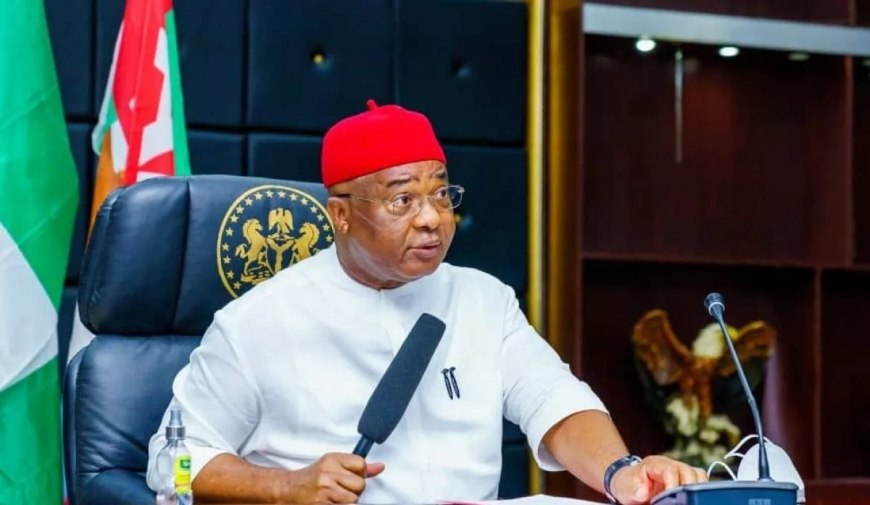Governors Advocate Constitutional Role For Traditional Rulers

Imo State governor, Senator Hope Uzodinma and his Lagos State counterpart, Babajide Sanwo-Olu, have stressed the need for traditional rulers to have a constitutional role.
The governors were among other dignitaries who emphasised the importance of giving traditional rulers a constitutional role at the National Council of Traditional Rulers of Nigeria (NCTRN) meeting held in Lagos.
Ten governors and traditional rulers from across the country attended the meeting, themed “The Traditional Institution: The Imperative of Its Inclusion in Effective and Efficient Governance in Nigeria.
The meeting brought together royal fathers from across the country to deliberate on the constitutional relevance of traditional leadership in modern governance.
Delivering the keynote address on behalf of the president, Uzodinma said that traditional rulers had remained the most enduring link between government and the people and must be formally recognised within the governance framework.
He said that the traditional institution continued to play crucial roles in promoting peace, cohesion, and stability despite the absence of constitutional backing.
“Across the country, our traditional rulers carry out essential responsibilities that keep our communities united and functionally mediating conflicts, preserving culture, and maintaining order,” he said.
Uzodinma recalled that traditional rulers had defined roles in the country’s early constitutional order, citing the 1963 Republican Constitution, which gave them legislative presence and participation in governance.
He lamented that the 1979 and 1999 constitutions failed to restore such recognition, leaving the institution to operate informally.
“This is not a question of nostalgia but one of institutional continuity. Our royal fathers are still doing the work; they need formal legal recognition,” Uzodinma said.
The governor urged the National Assembly to revisit the issue, stressing that many African countries, such as Ghana, South Africa, and Namibia, had already constitutionally entrenched their traditional institutions without undermining democracy.
He described the traditional institution as indispensable to Nigeria’s unity and stability, adding that the time had come to grant legal backing to the functions traditional rulers already perform.
“The marriage between governance and tradition is real. The only thing missing is the certificate,” Uzodinma said.
Earlier in his welcome address, Governor Babajide Sanwo-Olu of Lagos State, the host of the meeting, said Lagos was honoured to host the assembly of cultural custodians whose wisdom and leadership continued to uphold the nation’s moral fabric.
Sanwo-Olu described the meeting as timely, noting that traditional institutions had always been the trusted bridge between the people and government.
“Long before modern governance, our traditional rulers were the bedrock of stability and justice. Even today, no government can thrive without their support,” he said.
The governor recounted the historical contributions of monarchs who resisted colonial rule, including Oba Ovonramwen Nogbaisi of Benin, King Jaja of Opobo, and Chief Ogedengbe of Ilesha.
According to him, military intervention in governance weakened the traditional system, but democracy offers an opportunity for restoration.
“Our royal fathers must continue to push for constitutionally backed relevance. Lagos will always support this cause,” Sanwo-Olu said.
The Sultan of Sokoto, Alhaji Muhammad Sa’ad Abubakar, Chairman of the NCTRN, commended President Tinubu for his commitment to national unity. He expressed optimism that the discussions would lead to stronger institutional recognition for traditional rulers.
The Sultan urged traditional rulers to sustain their efforts to promote peace and security. He described their collaboration with the government as key to building a stable and prosperous Nigeria.
The event was attended by the Governors of Ekiti, Edo, Imo, Cross River, Kogi, Sokoto, Kebbi, Katsina, and Yobe, as well as top Traditional Rulers, including the Ooni of Ife, Oba Adeyeye Ogunwusi, Alaafin of Oyo, Oba Abimbola Owoade, Oba of Lagos, Rilwan Akiolu represented, and Ayangburen of Ikorodu, Oba Kabir Shotobi, among others.
Governors Advocate Constitutional Role For Traditional Rulers









